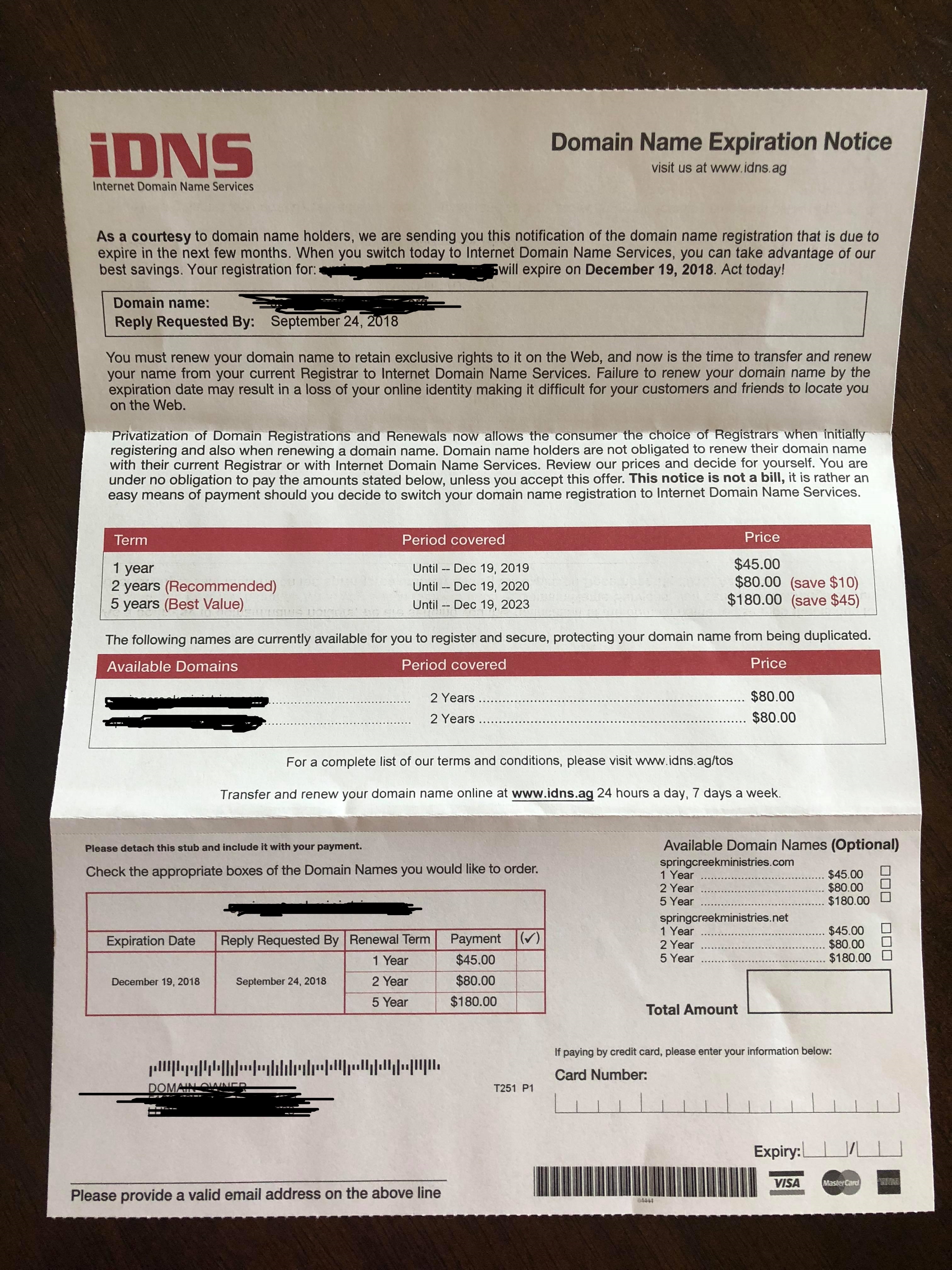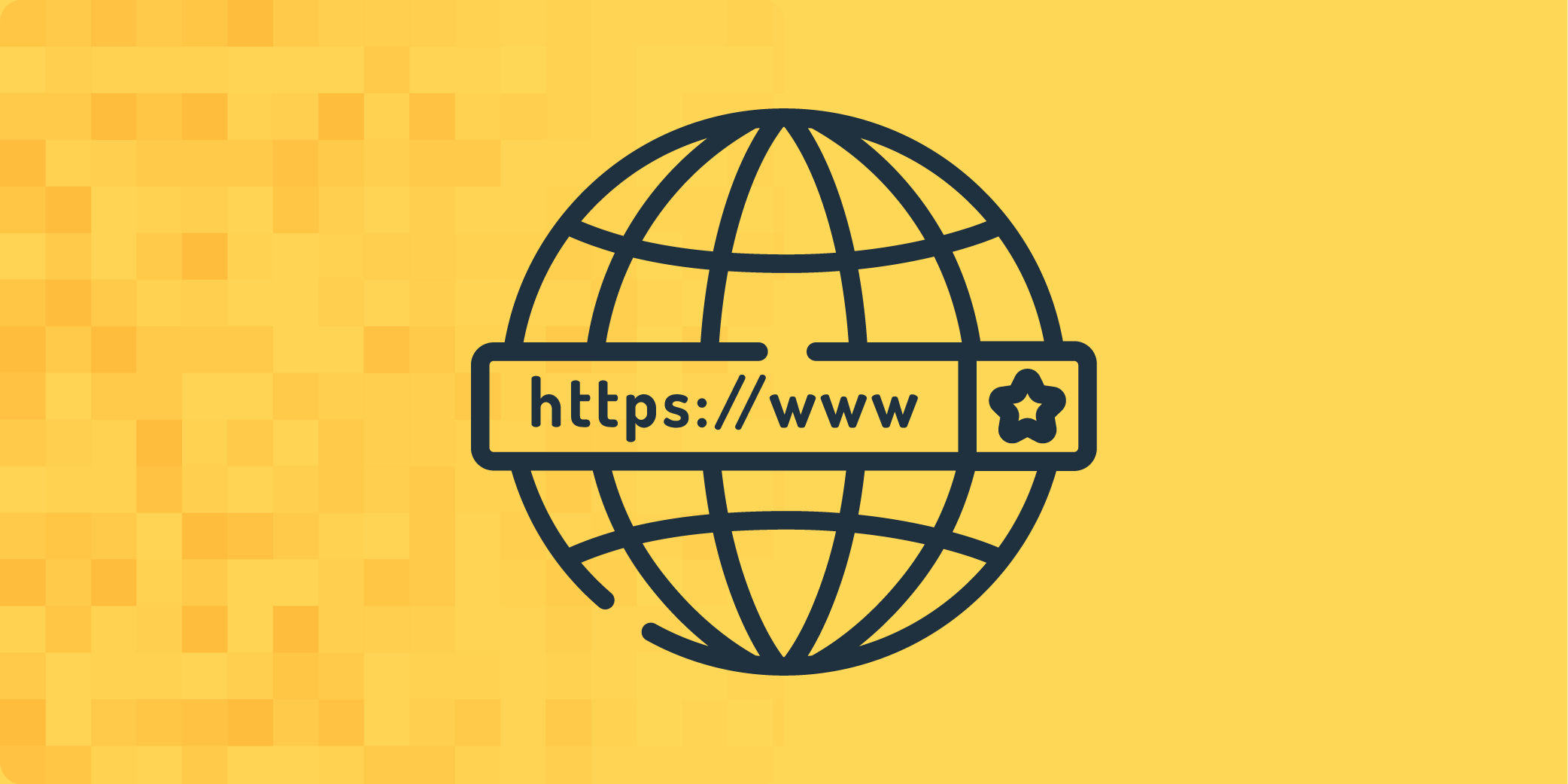Table of Contents
Ahh, good old scammers, where-be-it on Facebook, an email from a Nigerian Prince, EA games (I’m a little salty), or the classic “IRS” phone scam, bad people do live in this world and they prey on the ill-informed. This includes Domain names too.
Now, because one has to renew domains as often as every year, it’s easy to get lots of emails and snail-mail from different companies trying to get you to register your domain name with them. Before I get into what companies to avoid I’ll list a few domain registrars you can trust when buying or renewing domains.
1. Namecheap (This is a WunderTRE go-to)
2. GoDaddy (Arguably the most popular)
3. Domain.com
4. Hover
You may have heard of one or all of those and they’re all pretty good at what they do. If you can’t remember where you bought your domain name, use this tool to look it up.
Now let’s get on to the featured presentation.
Types of Scams
While methods for scamming change often, here are 3 to watch for.
Domain Slamming
This is the most common one I’ve seen. It’s also affected the most people because it can be made to look very legitimate. Commonly used by unethical domain registrars, domain slamming is when these unethical businesses send out invoice like letters to your home or place of business making you believe you’re going to lose your domain if you don’t send them a check. In most cases, they give you the option to pay for 1, 2, or 5 years at a time. Here’s where the scam comes in two ways.
1. The price you have to pay for renewal is typically 3 times more than you’d pay if you renewed through a legit registrar.
2. When you renew with them, they don’t give you any access to a dashboard where you can manage your domain, thus making your domain unusable.

Here’s an example of the type of “Notice” a domain slammer sends out.
Website Listing Services
Another way scammers try to get you is by sending out letters offering to list your website on “Popular websites and Search Engines.” This is totally fake. Things like “Get listed on the internet’s most popular 3 websites for 6-months for one low-fee” sound nice, but that low fee will end up costing you a lot. Most of the time nothing happens if money is sent to one of these “services”, thus making the scam just losing the money that was sent to them (which can be hefty). However, other times on top of losing the money, sometimes these “services” actually do list your website, just not on good clean wholesome sources. They list them on bot-networks, dark websites, malware, etc. Losing putting your domain at risk of getting banned forever. So all of this to say don’t pay a random company that sent you an email or snail-mail to list your website on the internet.
Chinese Domain Name Scam
Rounding out today’s list of upstanding business practices is the Chinese Domain Name Scam. The way this one works is straightforward, Chinese-based domain registrars will send out emails stating that other businesses are trying to buy up domains that closely relate to your business or trademark. They work by playing on your sense of urgency to stop that from happening. In the email they state they’ve “temporally blocked” your competitors from buying these domains and are giving you the chance to buy them first for a hefty sum (sometimes 10 times what they’re actually worth). Not only can they not stop people from buying the domain as they claim, but they also most likely don’t have the rights to register the domain in the first place, and thus you could end up paying hundreds maybe even thousands for domains that you don’t actually receive.
Who Scams You
So now that we’ve talked about what the scams are. I’m going to list out the know domain name scammers so you know unquestionably who to avoid.
Note: I will do my best to update this list each time I hear of a new company that deserves to be on it, so check back often if you need to. iDNS is the most popular one I’ve seen and I really haven’t seen many others personally, but I know people that have.
1. iDNS – Domain Slamming
2. Domain Registry of America – Domain Slamming
3. Domain Registry Services – Domain Slamming
4. Anything having to do with Chinese Domain Registrars
5. If the company that sends you an email or snail-mail and their domain ends in anything other than .com
How They Get Your Info
So how do they know who owns what domain? Simple, whenever you buy a domain you have to fill out basic contact info. If you haven’t paid for something like “Domain Privacy” or “WhoIS Guard” on Namecheap, GoDaddy, or any of the other legit ones, then anyone that goes to https://whois.icann.org/en can type in your domain and see who it belongs to and what their contact info is.
In Closing
All-in-all, if it looks fishy, it is. A general rule of thumb is unless your current domain registrar where you bought the domain is totally just messing it up for you, stick with them. Comment below if you’ve run into any scams for domains that I haven’t covered and I’ll try to get them added to the post! Thanks for reading and stay safe out there. If you need help finding a domain, contact us and we’ll help you!

